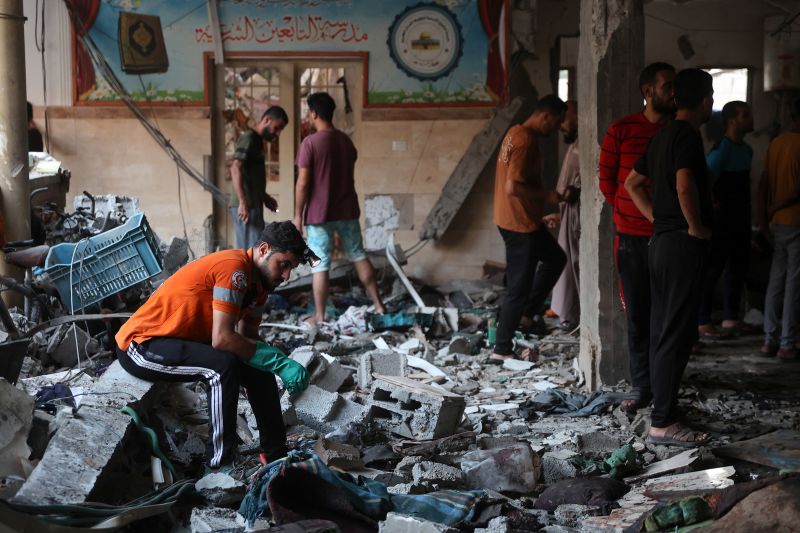
Hamas Leader Sinwar Pushing for Ceasefire Deal While Netanyahu’s Position Remains Uncertain, Say Mediators
In recent developments in the ongoing conflict between Israel and Hamas, the leader of Hamas, Yahya Sinwar, has expressed a willingness to consider a ceasefire deal, as reported by mediators involved in the negotiations. This potential shift in Hamas’ stance comes amidst the worsening humanitarian crisis in the Gaza Strip due to the continuous fighting with Israel.
The prospect of a ceasefire agreement raises hopes for a reduction in violence and the possibility of providing much-needed relief to the people caught in the crossfire of the conflict. However, the uncertainty lies in the response and stance of Israeli Prime Minister Benjamin Netanyahu, whose government has been resolute in its military actions against Hamas.
The willingness of Hamas to explore a ceasefire agreement could be seen as a strategic move to alleviate the dire situation in Gaza and to gain international support and sympathy. The pressure of the escalating humanitarian crisis, coupled with the mounting casualties on both sides, might have prompted Hamas to consider a diplomatic solution to the conflict.
On the other hand, Netanyahu’s response to the proposed ceasefire remains a critical factor in determining the future course of the conflict. His government has been under pressure to protect Israeli civilians from rocket attacks launched by Hamas while also facing criticism for the heavy toll the conflict has taken on Palestinian civilians.
Netanyahu’s decision regarding the ceasefire deal could be influenced by various factors, including domestic political considerations, security concerns, and the broader regional implications of a potential truce with Hamas. Balancing the demands of Israeli security with the need for a sustainable solution to the conflict presents a considerable challenge for the Israeli government.
The involvement of mediators in facilitating negotiations between Israel and Hamas reflects the international community’s recognition of the urgency to address the root causes of the conflict and the imperative to achieve a lasting peace in the region. The role of mediators in bridging the gap between the warring parties and facilitating dialogue is crucial in navigating the complexities of the conflict and finding a viable solution.
As the ceasefire negotiations unfold, the hopes for a cessation of hostilities and a respite for the civilians affected by the conflict remain high. The potential for a breakthrough in the talks between Israel and Hamas signifies a glimmer of hope for a future where peace and stability prevail in the region, bringing an end to the cycle of violence and suffering that has plagued the Israeli-Palestinian conflict for decades.
In conclusion, while the ceasefire deal proposed by Hamas leader Yahya Sinwar offers a ray of hope for a peaceful resolution to the conflict, the response of Israeli Prime Minister Benjamin Netanyahu and the challenges of balancing security concerns with the quest for peace underscore the complexity of the situation. The involvement of mediators and the international community in facilitating negotiations signifies a significant step towards finding a lasting solution to the Israeli-Palestinian conflict and bringing relief to the civilians caught in the midst of the violence.
